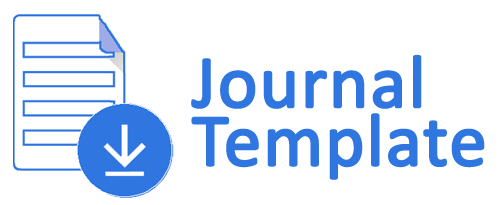Digital Literature
DOI:
https://doi.org/10.4444/jisma.v1i1.4Keywords:
Literary Learning, Digital Technology, Digital LiteratureAbstract
- The purpose of this library research is to describe (a). Principles of digital literary learning, (b). The concept of digital literary learning, (c). Assessment of digital literary learning. The method in this research uses a library study design. This research data is in the form of verbal exposure that contains information about digital literary learning, both regarding the underlying principles and alternative concepts of digital literary learning. This research data collection uses instruments in the form of recording or recording data. The data recording matrix is arranged based on needs and contains two elements, namely the description of the data source and the quoted data or data citation. The results of this study show that the Principles of digital literary learning include (a) Tradition, (b) Textuality, and (c) Methodological. The concept of digital literary learning refers to the theory of constructivism learning. That learners build knowledge and meaning from their experiences. Because learners have extensive backgrounds, experience, and skills, knowledge is built individually as learners work to understand the problems they face. Appropriate digital literary learning assessments use test assessments based on Bloom's taxonomy.
Downloads
References
Mestika, Z. (2004). Metode penelitian kepustakaan. Jakarta: Yayasan Obor Indonesia.
Montoro, R. (2015). Hoover, D. L., Culpeper, J., & O’Halloran, K. 2014. Digital Literary Studies. Corpus Approaches to Poetry, Prose, and Drama. International Journal of Corpus Linguistics, 20(1), 129–137. https://doi.org/10.1075/ijcl.20.1.07mon
Nurgiyantoro, B. (2011). Pengembangan Model Asesmen Otentik dalam Pembelajaran Bahasa. Cakrawala Pendidikan Edisi November 2009.
Pedoman-Penulisan-Karya-Ilmiah-UM-2017. (n.d.).
Asbari, M., Hidayat, D. D., & Purwanto, A. (2021). Managing Employee Performance: From Leadership to Readiness for Change. International Journal of Social and Management Studies, 2(1), 74-85.
Asbari, M., Hyun, C. C., Wijayanti, L. M., WINANTI, W., Fayzhall, M., & Putra, F. (2020). HARD SKILLS DAN SOFT SKILLS: APA MEMBANGUN INOVASI GURU SEKOLAH ISLAM?. Evaluasi: Jurnal Manajemen Pendidikan Islam, 4(1), 143-172.
Nugroho, Y. A., Asbari, M., Purwanto, A., Basuki, S., Sudiyono, R. N., Fikri, M. A. A., ... & Xavir, Y. (2020). Transformational leadership and employees' performances: The mediating role of motivation and work environment. EduPsyCouns: Journal of Education, Psychology and Counseling, 2(1), 438-460.
Purwanto, A., Asbari, M., & Santoso, T. I. (2021). Analisis Data Penelitian Marketing: Perbandingan Hasil antara Amos, SmartPLS, WarpPLS, dan SPSS Untuk Jumlah Sampel Besar. Journal of Industrial Engineering & Management Research, 2(4), 216-227.
Purwanto, A., Bernarto, I., Asbari, M., Wijayanti, L. M., & Hyun, C. C. (2020). The Impacts of Leadership and Culture on Work Performance in Service Company and Innovative Work Behavior as Mediating Effects. Journal of Research in Business, Economics, and Education, 2(1), 283-291.
Purwanto, A., Bernarto, I., Asbari, M., Wijayanti, L. M., & Hyun, C. C. (2020). The Impacts of Leadership and Culture on Work Performance in Service Company and Innovative Work Behavior as Mediating Effects. Journal of Research in Business, Economics, and Education, 2(1), 283-291.
Purwanto, A., Asbari, M., & Santoso, T. I. (2020). Analisis Data Penelitian Manajemen Pendidikan: Perbandingan Hasil antara Amos, SmartPLS, WarpPLS, dan SPSS Untuk Jumlah Sampel Kecil. International Journal Of Social, Policy And Law, 1(1), 111-121.
Purwanto, A., Asbari, M., & Hadi, A. H. (2020). Gaya Kepemimpinan Perguruan Tinggi Kesehatan: Authentic, Tansformational, Authoritarian atau Transactional. Surya Medika: Jurnal Ilmiah Ilmu Keperawatan dan Ilmu Kesehatan Masyarakat, 15(1), 8-18.
Purwanto, A., Asbari, M., Prameswari, M., & Ramdan, M. (2020). GAYA KEPEMIMPINAN DI MADRASAH ALIYAH: AUTHENTIC, TANSFORMATIONAL, AUTHORITARIAN ATAU TRANSACTIONAL?. Nidhomul Haq: Jurnal Manajemen Pendidikan Islam, 5(1), 15-31.
Purwanto, A., Asbari, M., & Santoso, T. I. (2020). Analisis Data Penelitian Manajemen Pendidikan: Perbandingan Hasil antara Amos, SmartPLS, WarpPLS, dan SPSS Untuk Jumlah Sampel Kecil. International Journal Of Social, Policy And Law, 1(1), 111-121.
Presiden Republik Indonesia. (2012). Undang-Undang Republik Indonesia Nomor 12 Tahun 2012 tentang Pendidikan Tinggi. Undang-Undang PENDIDIKAN TINGGI, 1–97. https://doi.org/10.1073/pnas.0703993104
Sastra, P. P. (2017). Journal Indonesian Language Education and Literature, 2(2), 163– 179.Siemens, R. (n.d.). Wiley: A Companion to Digital Literary Studies. Retrieved from http://eu.wiley.com/WileyCDA/WileyTitle/productCd-1405148640.html
Smith, K. (2015). Constructivist design theory.
Steggle, M. (2013). Knowledge will be multiplied": Digital Literary Studies and Early Modern Literature. A Companion to Digital Literary Studies, 82–105. https://doi.org/10.1002/9781405177504.ch4
Sudarsana, I. K. (2016). Pemikiran Tokoh Pendidikan Dalam Buku Lifelong Learning: POLICIES, PRACTICES, AND PROGRAMS (Perspektif Peningkatan Mutu Pendidikan di Indonesia). Jurnal Penjaminan Mutu, 2, 44–53. https://doi.org/10.25078/jpm.v2i2.71
Suyono. (2007). Dimensi, jenjang dan asesmen perilaku berliterasi siswa di sekolah. Jurnal Ilmu Pendidikan, 14(2), 69–75. https://doi.org/http://dx.doi.org/10.17977/JIP.V14I2.23
Suyono. (2009). Pembelajaran Efektif Dan Produktif Berbasis Literasi: Analisis Konteks,Prinsip, Dan Wujud Alternatif Strategi Implementasinya Di Sekolah.
Downloads
Published
How to Cite
Issue
Section
License
Copyright (c) 2022 M. Badru Tamam, Masduki Asbari

This work is licensed under a Creative Commons Attribution-NonCommercial-ShareAlike 4.0 International License.









